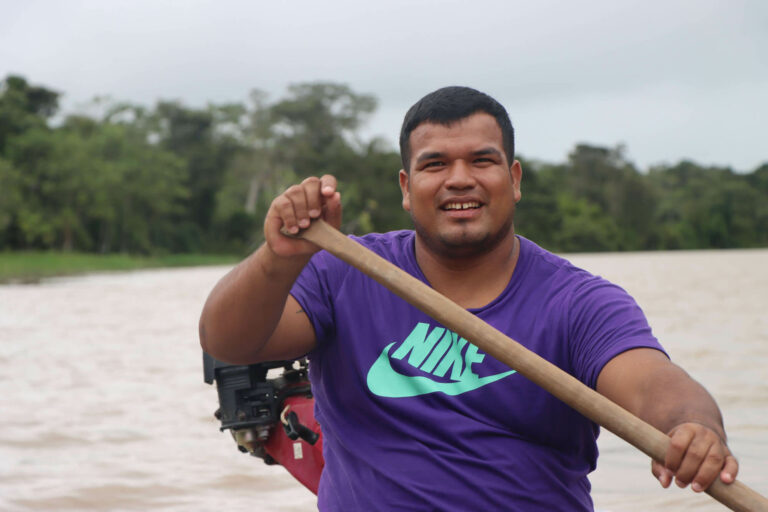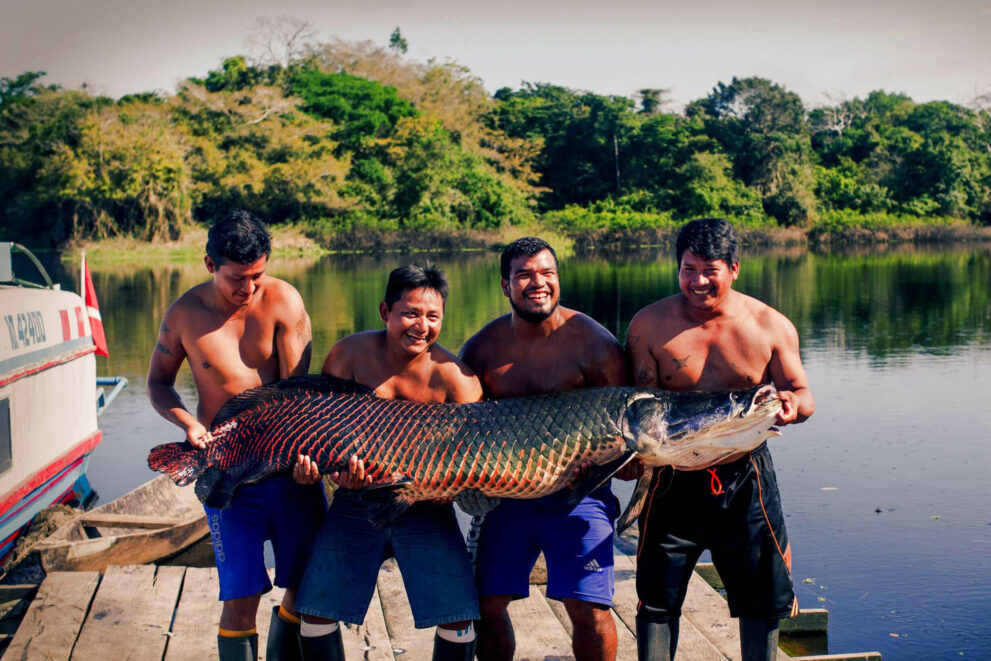Watson Sampaya (30), an artisanal fisherman from Brittany, capital of the Puinahua district (Requena, Loreto), represented his town and region in an internship held in Coquimbo (Chile), as part of the Spondylus Program of the National Innovation Program in Fisheries and Aquaculture (PNIPA).
Along with 29 other Peruvian interns, Sampaya participated in the 15-day training program for productive agents in the fishing and aquaculture sector. In this training, the only representative fisherman from Loreto learned new techniques and methods to improve the sustainable extraction of paiche in lakes of the Pacaya Samiria National Reserve.

He stressed that in the internship he was able to learn about cases of social organizations that reached an important level of development and autonomy that allows them to continue growing without support from the State or the private sector. He considered that this experience could be replicated in Puinahua.
He also commented that in Chile he was able to discover and learn techniques that he will share with his fishing companions to continue optimizing the extraction and use of paiche.
Watson recounted the evolution of artisanal fishing carried out by the Social Organization of Artisanal Fishermen and Processors (OSPPA) Arahuana Fish, of which he is a part, and detailed the great and positive changes they have experienced thanks to the implementation of the Fisheries Innovation Project. This project has made paiche fishing in Brittany more sustainable and profitable thanks to synergies between public and private actors, such as PetroTal, a company led and operated by Peruvians; Amazon Pantry, CITE Maynas, SERNANP, Energy, Environment and Sustainability, among others.

“Before, I only extracted the fish and sold it in Brittany. Now we travel to Iquitos and prepare paiche cuts and food products such as hamburgers, chorizos and nuggets ”, commented Sampaya, who also highlighted the support of PNIPA, attached to the Ministry of Production.
One of the initiatives of the innovation project received funding from PNIPA that was supplemented with company resources to become a reality: the floating fishing platform in the Yarina lake, where fishermen remove scales and entrails.
Another innovative project that was completed with financial support from PetroTal and the participation of various stakeholders was the construction of a flake ice plant that works with solar energy. “Now we want to reach supermarkets and other destinations with our products, so that Brittany fishermen see this example and can replicate it,” said Sampaya. Currently, with co-financing from PNIPA, a project is being developed to obtain caviar from carachama eggs, another species that is sustainably extracted in Pacaya Samiria.